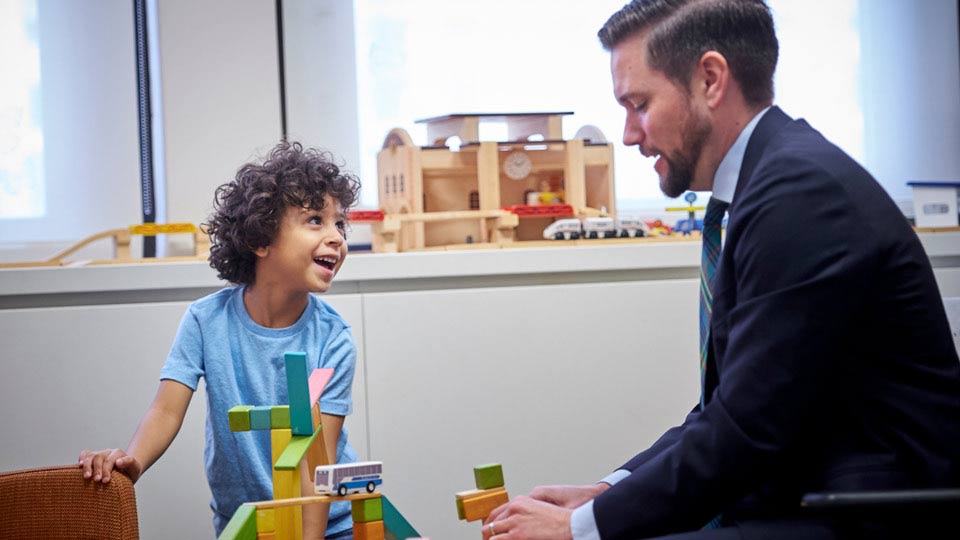Main content
We use cookies and similar tools to give you the best website experience. By using our site, you accept our Websites Privacy Policy.
Specialists at the Child Study Center, part of Hassenfeld Children’s Hospital at NYU Langone, offer evidence-based behavioral therapies for children and adolescents with mood disorders.
Cognitive behavioral therapy, or CBT, is a problem-focused approach that aims to teach children and teens a variety of coping techniques to help improve their mood and effectively manage difficult situations.
In CBT, children are taught to identify the behavior and thinking patterns that underlie their emotional distress and adjust their thoughts and actions to improve their symptoms and functioning.

CBT is typically conducted in one-on-one sessions, during which a therapist works with your child. It may also be offered in a group setting.
Parents are invited to join sessions regularly to learn how to guide children to use new coping skills between sessions. More extensive parent coaching and family therapy are also available.
CBT can also help children and adolescents to identify possible triggers of manic and depressive episodes. In addition, it teaches them to use helpful thinking and behavioral strategies to improve coping.
Interpersonal psychotherapy aims to reduce the symptoms of depression by increasing social support and improving a child’s ability to manage his or her situation. In the first phase of treatment, the therapist links the child’s mood to changes in interpersonal situations, such as relationships with others.
The therapist works with your child to figure out what triggers his or her depression. It may be grief following the death of a loved one, changes in life circumstances, conflict or changes in important relationships, or social skill deficits.
After the depression trigger is identified, the therapist helps your child to develop skills that can improve his or her ability to manage and improve interactions with others.
Family-focused therapy is a form of treatment especially designed for families with an adolescent who has bipolar disorder. It focuses on illness management, including how to identify impending relapses, problem solving, and communication skills.
Psychotherapy, or “talk” therapy, involves meeting with a mental health professional to identify and work through the problems that may contribute to or result from a mood disorder. Psychotherapy usually takes place one-on-one with a psychiatrist, psychologist, or a licensed clinical social worker.
Our therapists use a variety of techniques to treat children with depression. These include relationship building between your child and the therapist, discussing how the condition affects his or her daily life, improving communication, and changing behavior to improve overall mental health.
Psychotherapy can be used alone or in combination with medication to treat mood disorders in children and adolescents.
We can help you find a Hassenfeld Children’s Hospital doctor.
Call 646-929-7970
or
browse our specialists.